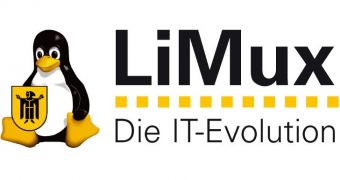The City of Munich has become one of the most prominent examples of a city administration that switched from Microsoft products to open source, and it looks like Canonical and Ubuntu were an instrumental part of that change.
The City of Munich managed to shake off the Microsoft dependency, but it took a lot of work and it wasn't cheap. The benefits of moving from Microsoft products to open source might look expensive, but the costs are significantly lower than an upgrade, and it will prove to be a lot cheaper in the future.
Moving from a proprietary solution to an open source one is not all that simple when you have a city the size of Munich. It has 22 organizational units and each of those units has its own IT department, not to mention different versions of the applications.
The local authorities couldn't just adopt a Linux distribution on the fly. The first try was made with Debian back in 2006, but that particular OS didn't have a predictable release schedule. This is how the new LiMux was born, an operating system based on Ubuntu.
“The LiMux/open source project was a long and iterative one, but after a few years of running such a large Linux base, we realized Ubuntu was the platform that could satisfy our requirements best. By combining the low costs and freedom of open source software with ongoing support for the hardware and applications we need, it was one of the critical elements to the success of this project. Most important was the backing of our politicians throughout the project,” said Peter Hofmann, project manager for the City of Munich.
This tremendous project helped Munich save €10 million ($13.6 million) by 2013, but that is if we take into consideration only the upgrade costs. That sum might be a lot bigger if we could quantify the official support for the software and other hidden costs.
Right now, in Munich, there are 14,000 PCs that are running LiMux and that number is still increasing. It's very likely that other German cities will do the same in the future, especially the ones neighboring Munich.
It took the authorities of Munich 13 years to finish the transition, but in the end they managed to save a lot of money and prove that Linux is actually a very good and free solution for the IT infrastructure of an entire city.

 14 DAY TRIAL //
14 DAY TRIAL //